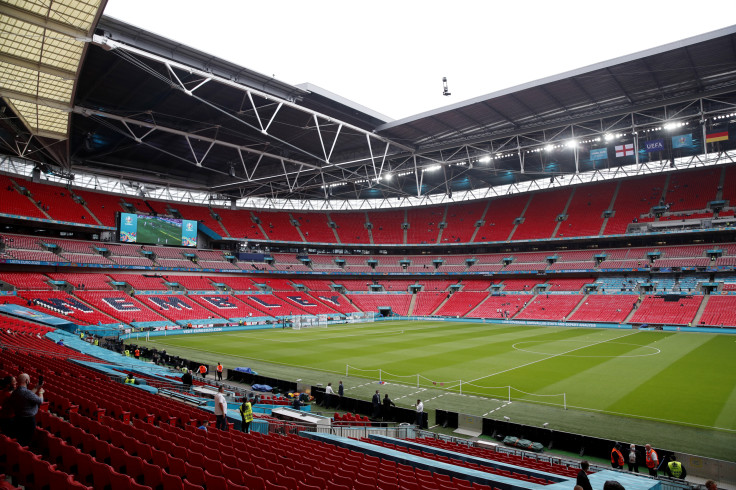UK and Ireland Secure UEFA Euro 2028 Hosting Rights, Promising a Summer Spectacle
The joint bid faced its final competitor, Turkey, which eventually withdrew to focus on a joint bid with Italy for Euro 2032—a bid that was also approved on the same momentous Tuesday morning.

The United Kingdom and Ireland have secured the prestigious opportunity to host Euro 2028, one of Europe's premier international men's football tournaments. This historic announcement came after Turkey withdrew from the competition to focus on a joint bid with Italy for Euro 2032, which was also approved.
The UK and Ireland's successful bid is expected to bring significant economic benefits to the five participating nations: England, Wales, Scotland, Northern Ireland and the Republic of Ireland. Bid leaders estimate that the 2028 tournament will generate approximately £2.6 billion in economic benefit.
One of the most significant aspects of the announcement is the selection of host stadiums for Euro 2028. While Wembley Stadium in London will host the final and potentially both semi-finals, other iconic stadiums, such as Anfield and Old Trafford, home to Liverpool and Manchester United respectively, were not included in the final list. Instead, the tournament will be spread across ten stadiums in the UK and Ireland. These stadiums are:
1. Wembley Stadium, London
2. Tottenham Hotspur Stadium, London
3. The Etihad Stadium, Manchester
4. St James' Park, Newcastle
5. Villa Park, Birmingham
6. Everton's new home at Bramley-Moore Dock, Liverpool
7. Casement Park, Belfast
8. Aviva Stadium, Dublin
9. Hampden Park, Glasgow
10. Principality Stadium, Cardiff
This diverse selection of stadiums across the five nations will undoubtedly contribute to the unique character of Euro 2028.
One notable provision is that should any of the five host nations fail to qualify for the tournament on merit, the Union of European Football Associations (UEFA) has reserved two safety-net berths for these host nations. If more than two of the nations do not qualify, the two with the best record will be given the spots, ensuring that at least some of the host nations participate in the tournament.
However, England has expressed its intention to go through the qualification process, emphasising the Football Association's commitment to keeping the team competitive in the lead-up to the finals.
Even if Turkey had remained in the competition, the UK-Ireland bid would have been the overwhelming favourite to host Euro 2028. UEFA sources had stressed the importance of hosting a European Championship in a major market, following Germany's hosting of Euro 2024, as a means to boost finances after the economic challenges posed by the COVID-19 pandemic.
Despite the excitement surrounding this announcement, several challenges remain on the path to Euro 2028. One of the major concerns is the redevelopment of Casement Park, a 34,000-seater stadium in Belfast.
As of now, an agreement on who will fund this redevelopment has yet to be reached. Legal challenges have complicated the plans and the lack of a functioning executive at Stormont, Northern Ireland's seat of power, adds to the complexity of the situation.
Furthermore, the estimated cost for the Casement Park redevelopment has exceeded the initial projection, with the budget now standing at over £100 million, compared to the original estimate of £77.5 million.
With the decision to host Euro 2028, England is set to be involved in running a European Championship for the third time. They previously hosted Euro 96 as the sole host and were one of 11 countries involved in staging the continent-wide Euro 2020.
The UK-Ireland bid organisers have warmly welcomed the outcome and extended their congratulations to Italy and Turkey for their successful 2032 bid.
In a joint statement, the five football associations of the UK and Ireland expressed their delight at the decision: "Across the UK and Ireland, celebrations are underway as players, fans and local communities can look forward to an outstanding festival of summer football at UEFA Euro in 2028."
Prime Minister Rishi Sunak also expressed his enthusiasm for the event, stating that Euro 2028 would inspire a "whole new generation". Mark Drakeford, the first minister of Wales, emphasised that the tournament would deliver an "unforgettable and spectacular" experience, while Scottish First Minister Humza Yousaf echoed these sentiments, looking forward to a "welcoming, exciting and safe Euro 2028".
Culture Secretary Lucy Frazer expressed her thrill at the prospect of hosting the "biggest sporting event ever jointly hosted in the UK and Ireland".
She assured that the tournament would put fans at its heart and warmly welcome supporters from across Europe to the islands' shores, creating memories that would last a lifetime.
© Copyright IBTimes 2025. All rights reserved.






















